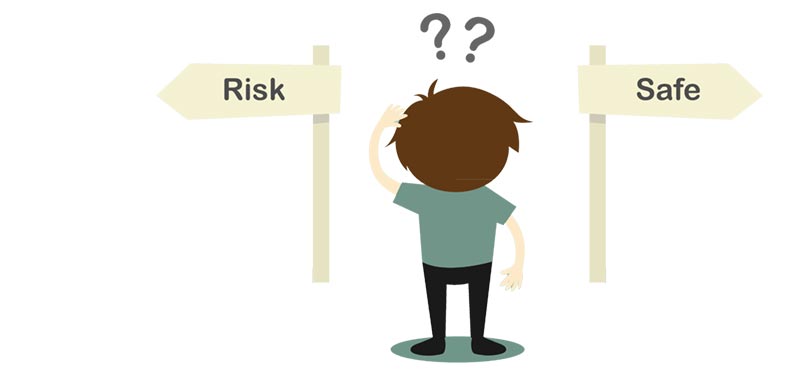More Than Just
Boring Definitions

Lastly, let’s review some other important investing definitions.
Risk
Risk in investment terminology means
permanent impairment or price drop
of a stocks or long-term bond, signifying that the prospects of a full recovery are remote.
See Investment Piece #6 - Risk and
Investment Piece #7 - Risk and You, for a full explanation
VOLATILITY
Volatility in investment terminology means
a significant increase or decrease in the price
of a stocks or perhaps a long-term bond within a short period of time.
"Volatility in the up direction is not a problem-it's only downward volatility that offers discourse." - Coreen T. Sol
See Investment Piece #6 for a full explanation
LONG-TERM INVESTING
Investing for at least 10 years,
but preferably 20, 30 or even 40 years.
"If you aren't thinking about owning a stocks for ten years, don't even think about owning it for ten minutes."
― Warren Buffett
COMPOUND INTEREST
Einstein called compound interest
"Mankind's greatest discovery"!!
That is pretty high praise coming from the guy that developed the Theory of Relativity.
Compound interest is different than simple interest. Simple interest is calculated only on the original principal amount. Compound interest is calculated on the original principal, and also on the accumulated interest of prior periods.
MARGINAL TAX RATE
In essence, the marginal tax rate is the percentage taken
from your next dollar of taxable income above a pre-defined income threshold. Your average tax rate is the percentage of your income that went to the government; it’s the total tax you paid divided by your total income. As an example, if you made $10,000 and paid $1,000 in taxes, your average tax rate would be 10%.
RATING AGENCY AND RATINGS
A credit rating agency
is an independent company
that evaluates the financial condition of an issuer’s debt instruments and then assigns a rating that reflects its assessment of the issuer's ability to make the debt payments.
DIVIDEND REINVESTMENT PLAN (DRIP)
A dividend reinvestment plan (DRIP)
is a plan offered by a corporation.
A DRIP provides a shareholder, (a shareholder is the owner of a share or stock), with the ability to accept their dividend in the form of additional shares instead of a cash payment. The main advantage is that there are no commissions associated with a DRIP. Also, some companies offer a small discount on the purchase of shares made through a DRIP
Source: http://www.investopedia.com/terms/d/dividendreinvestmentplan.asp
DIVIDEND TAX CREDIT
A dividend tax credit
is the amount you can apply against your tax owing
on the grossed-up portion of dividends you received from Canadian corporations. (The dividends you receive from Canadian corporations are "grossed up" by 25%. This amount is then included on your income tax form as taxable income. Both Canadian federal and provincial governments then grant you a tax credit, equal to a percentage of the grossed-up amount. This helps to reduce your actual tax payable.)
Source: http://www.investopedia.com/terms/d/dividendtaxcredit.asp
INFLATION
Inflation is the decline in the purchasing power of money
due to a general rise in prices.
If inflation, also known as the Consumer Price Index (CPI) is 2% per year, the value of your money will be cut in half in 36 years, (if your not sure about this, see Investment Piece #1).
It also means that you will have to make exactly twice as much money as you make today simply to maintain the same standard of living 36 year years from now.
